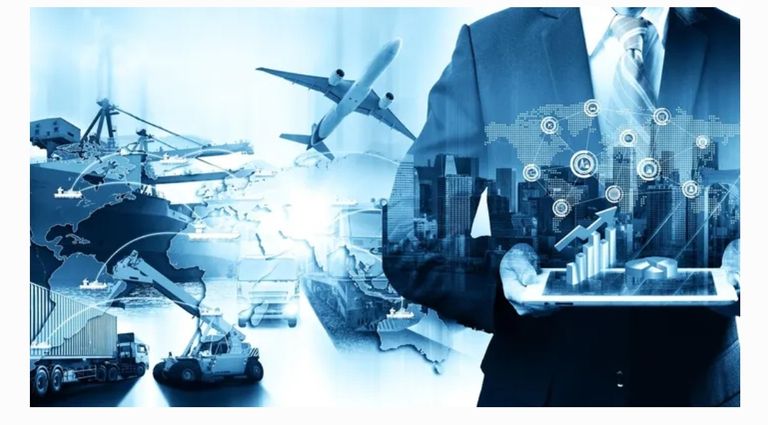My years of blogging in the crypto space had been filled with exploring the amazing features of blockchain technology I've read lots of articles from like minded authors who have shared their vast knowledge about blockchain technology, there is no limit to how vast information we can amass from this space, blockchain technology in recent years was only seen as a major player in the finance and cryptographic space but with much advancement in technological use it had widespread and find use in various industries and organisations which includes healthcare, transportation, energy sectors and logistics.
In this post I will be exploring the benefits of implementing blockchain technology in supply chain management, with a focus on traceability, transparency and streamlined logistics with some real world examples that shows the practical application of blockchain technology in supply chains. Supply chains are becoming increasingly complex, spanning across various organizations, countries, and regulatory frameworks. Which often leads to challenges such as lack of transparency, inefficiencies, counterfeit products, and difficulties in traceability. The emergence of blockchain technology has introduced a revolutionary solution to address these issues making supply chain manageable in some industries it is been implemented.

Implementation of blockchain in supply chains with real time applications
Traceability
One of the significant advantages of blockchain in supply chain management is enhanced traceability. Blockchain provides an immutable and transparent ledger where all transactions and data related to the supply chain can be recorded and verified. This feature enables stakeholders to track the movement of goods and raw materials throughout the supply chain, from the source to the end consumer.
A real time practical example where traceability has been used to track supply chain is Walmart, in collaboration with IBM, implemented blockchain technology to track the journey of mangoes from farms in Mexico to stores in the United States. By scanning QR codes on the mangoes' packaging, customers and suppliers could access detailed information about the fruit's origin, quality, and handling practices. This increased transparency and traceability helped Walmart ensure the freshness and safety of its products.
Transparency
Blockchain brings transparency to supply chains by providing a shared, decentralized ledger accessible to all authorized participants. This transparency eliminates information falsification and increases trust among stakeholders, enabling them to validate and verify data at any point in the supply chain.
A real time example. The diamond industry has implemented blockchain to address the issue of conflict diamonds. Everledger, a blockchain based platform, creates a digital record for each diamond, capturing its unique attributes, history, and certification. By leveraging blockchain's transparency, stakeholders can verify the legitimacy of diamonds, ensuring ethical sourcing and reducing the risk of supporting illegal activities.
Streamlined logistics
Blockchain technology streamlines logistics by automating and digitizing manual processes, reducing paperwork, and improving overall efficiency. Smart contracts, a feature of blockchain, enable self executing agreements based on predefined conditions, eliminating intermediaries and speeding up transaction processing.
Real world example: The Singaporean government, in partnership with industry players, implemented a blockchain based trade platform called TradeTrust. This platform integrates existing systems and streamlines cross border trade processes by digitizing and automating documentation, such as certificates of origin and bills of lading. By reducing administrative burdens and improving transparency, TradeTrust has significantly enhanced the efficiency of Singapore's logistics industry.
In conclusion we can see the significant benefits of blockchain technology enhancing supply chain operations, increasing trust among production lines, and ensuring the delivery of authentic and safe products to consumers. As this technology continues to evolve, its widespread adoption in global supply
chains holds the potential to transform our industries and drive positive change in the way goods are produced, distributed, and consumed.
Reading References
5 Uses of Blockchain in the Supply Chain
7 real-life blockchain in the supply chain use cases and examples